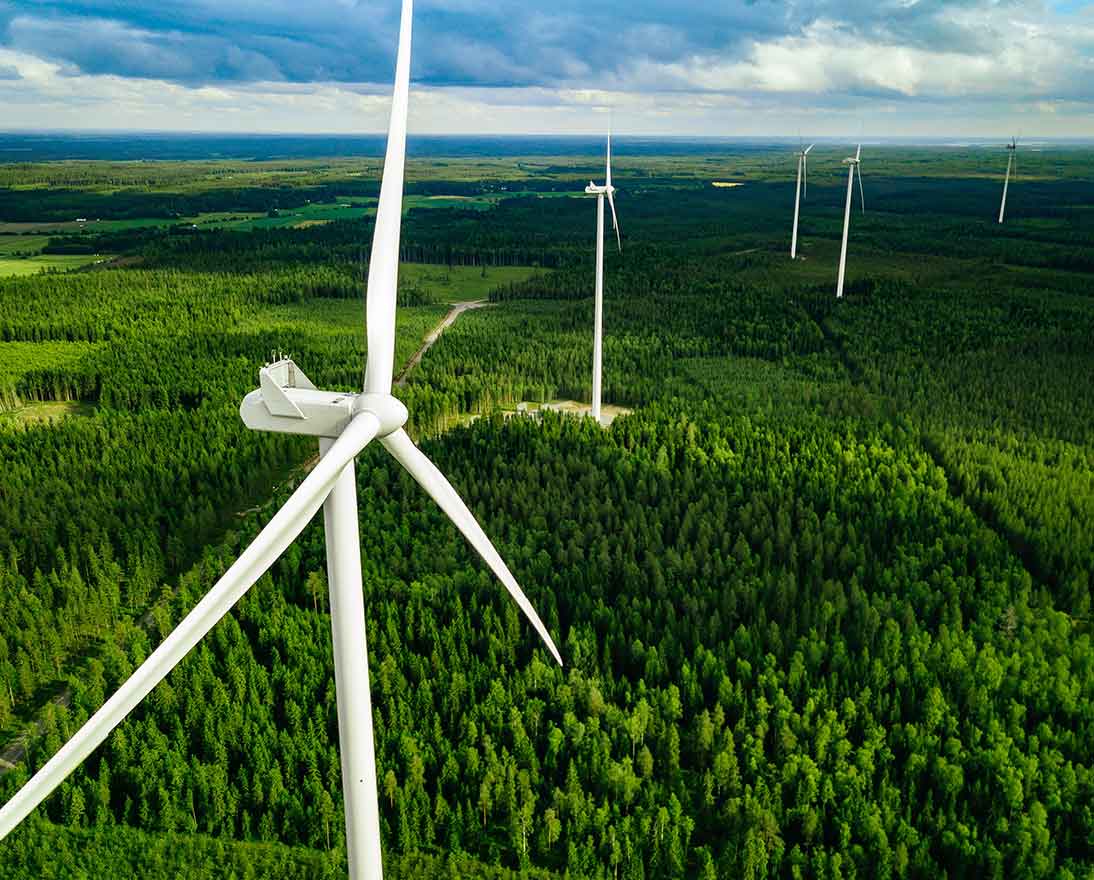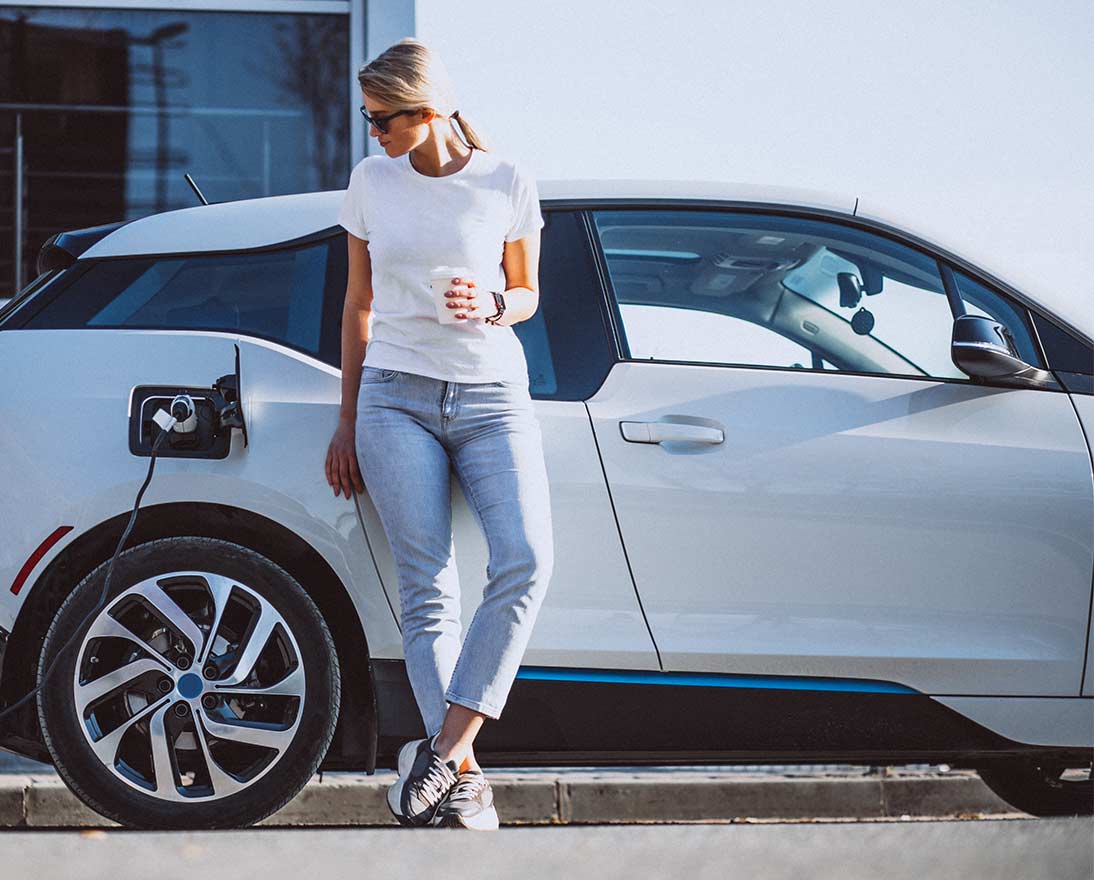
Leaders with Lacqua Goes Green: White House Clean Energy Advisor John Podesta
The net-zero energy transition will be more transformational than the rise of the internet, argues John Podesta. Watch the latest episode of Leaders with Lacqua Goes Green, sponsored by Zurich Insurance Group.
It’s hard to imagine anything more disruptive than the internet. It has, after all, changed almost everything, from the way we communicate to how we work. But for John Podesta, a former White House chief of staff and now advisor to US President Biden on clean energy, the push to get to net-zero emissions will have an even more radical effect on our lives and our economy.
“I lived through the earliest part of my career seeing the power of the internet and what it did to communications and information technologies. This is even more profound than that,” he said at the Bloomberg Green Summit in New York. “We have to get to net-zero, and that’s a transformation of the global economy on a size and scale that’s never occurred in human history.”
If that sounds daunting, that’s because it is. Take the example of clean energy. As Podesta pointed out, “clean power is already cheaper than fossil power.” And yet, as was reported in the 2023 Global Risks Report, developed by the World Economic Forum in collaboration with Zurich and Marsh McLennan, geopolitical tensions and economic pressures have seen the EU spend around €50 billion on fossil fuel infrastructure and supplies.
Geopolitical strife and economic uncertainty aside, there are many more roadblocks on the path to net-zero emissions. According to the Financial Times, business executives are not convinced the workforce is equipped with the skills needed to put in place the transition, and the returns on investment for green projects are not yet where the markets would like them to be.
Initiatives such as the US Inflation Reduction Act — which provides funding and incentives to accelerate the clean energy transition, and which Podesta is tasked with implementing — provide one example of how governments can help remove these roadblocks. But as Podesta says, even throwing billions of dollars at the problem does not take away from the complex nature of the challenge. “I thought it’d be easy to give away $370 billion, but it turns out there’s a lot to it to try to get right,” he joked, adding that the most effective approach will be to “go sector by sector.”
One sector that has already seen huge transformations is the transport industry, which in 2021 accounted for 28% of greenhouse gas emissions in the US.
According to Brazilian motorsports racing driver Lucas di Grassi, who was also in attendance at the Bloomberg Green Summit, “back in 2012, nobody was really talking about electric cars.” It was around that time that di Grassi became the official test driver for Formula E, a motorsport championship for electric cars. The idea, he explained, was “to accelerate the development of technologies that you’ll see in commercial vehicles in the future.” A decade later, global sales of EVs hit 6.6 million, almost doubling from the previous year.
Of course, government subsidies have helped boost those sales. In the US, for example, provided certain conditions are met, consumers buying electric vehicles can receive a tax credit of $7,500. Government regulation will also have a role to play in the gradual phasing out of fossil-fuel-powered vehicles. Indeed, many countries — the UK and Denmark, to name just two — have already outlined their plans to ban sales of new cars with internal combustion engines by 2030.
That goal might sound audacious, especially given the slow pace of progress when it comes to developing the infrastructure needed to support the mass uptake of electric vehicles. But di Grassi thinks the technological developments he and his teammates have seen on the racing tracks will soon be available on the consumer market, which could help smooth the transition and offer new opportunities for businesses. “There are many different technologies that we are racing with now that others will see on the road in the next few years,” he explained. “Our batteries have a charge rate of 600 kW.” As a point of reference, today, the fastest commercial chargers have a rate of 350 kW, and home chargers have a rate of 3.6 kW.
For Podesta, these types of innovations will ultimately be good for both the economy and the environment. “The push for investment and innovation is happening across the board,” he noted. “That creates growth, that creates momentum, that creates sustainability.”
Zurich Insurance Group was a presenting sponsor of the Bloomberg Green Summit for the third consecutive year. During the event, Zurich unveiled an inspiring video, "Listen to the Zurich Forest”, which tells the story of the Zurich Forest Project in Brazil, a small but tangible example of how Zurich is taking action to address climate change.
Watch the full episode for more insights, which was first aired on May 25, 2023, on Bloomberg.com.





